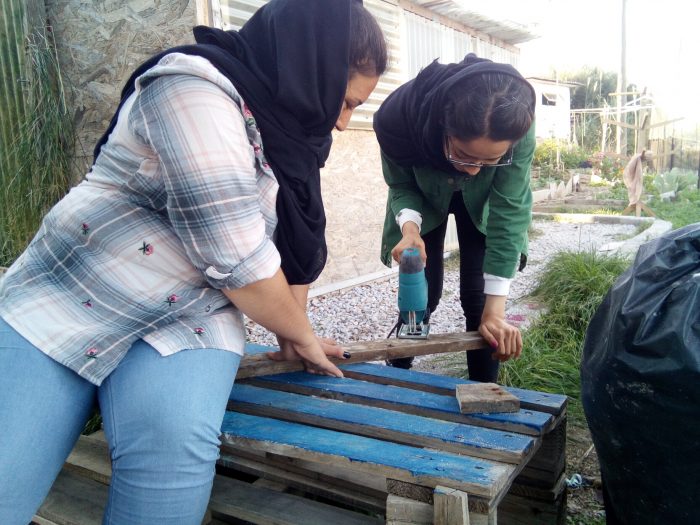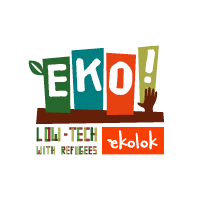 |
Located on the Greek island of Lesbos, Moria is the biggest refugee camp in the European Union: 21 000 asylum seekers live there, in precarious conditions with little access to basic services such as water, healthcare and education… Despite the physical presence of humanitarian NGOs, their interventions have shown to be very inefficient considering the needs of this populations, particularly for women who face specific issues (feeling of unsafety, reluctance to take part in mixed-gender activities…). |
In this context, the EKO! association undertakes actions to answer these migrants’ immediate needs through low-tech which are simple, accessible (in terms of required skills and funds) environment friendly (local renewable or second-hand materials, low energy requiring methods…) solutions. The association trains them in the repair and/or construction of objects that are essential to their autonomy (boxes, mattresses, lamps etc.) through the recycling of waste found the camp. In spite of their wish to participate in the workshops, women face difficulties to access the tools and materials, often monopolised by men.
This project is a pilot program aiming to facilitate the integration of women to these activities, dedicating them workshops adapted to their needs. This will be put in place in collaboration with WISH (Women in Solidarity House), a women-only community space located 5 km away from the Moria camp and right in front of the Kara Tepe refugee camp. 2 weekly training sessions will be held in line with women’s priority needs: wood and metalwork, pottery, plastic recycling, sewing and bike repair.

The EKO! association leads innovative and uplifting projects in relation with sustainable development and international solidarity. It promotes personal and collective fulfilment and resilience with respect for the environment and cultures. Launched under the name of Low-tech for Refugees in January 2018, this project has been operated by EKO! since 2019.